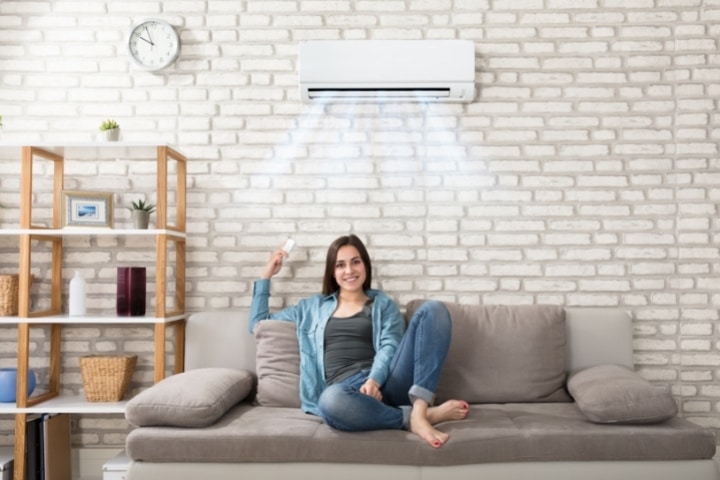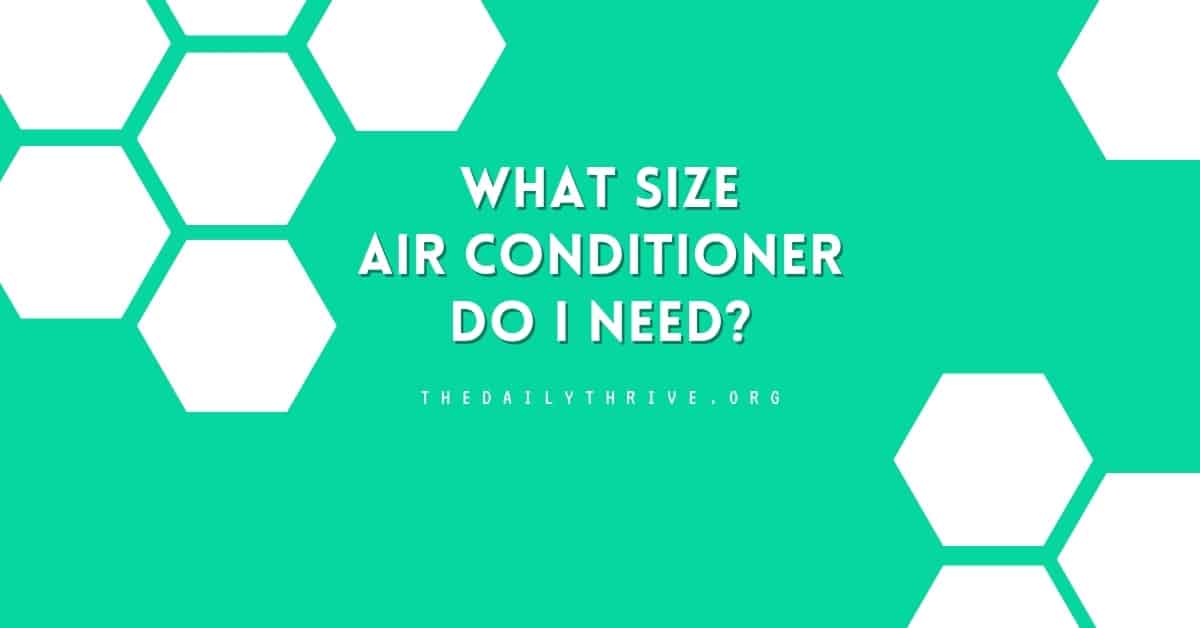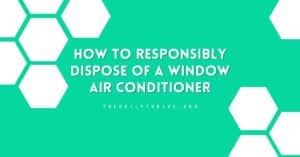What size air conditioner or furnace do I need for my home? An oversized or undersized piece of garment won’t break your bank – it might make you feel bad, and you’ll move on – but it’s not the same case when you accidentally purchase the wrong sized air conditioning. If it’s too big, there could be frequent short cycling and even a possibility of a system’s breakdown. If it’s too small, the AC won’t cool your place correctly, and the non-stop running will leave you stuck with skyrocketing energy bills. Therefore, the best way to make sure cost-effective, comfortable cooling is to ensure you have the right sized Air Conditioner.

No worries if you are unfamiliar with the “seemingly” intimidating process of sizing an air conditioner. Although finding the correct size air conditioning requires some evaluations, it isn’t as difficult as it seems. So, why play the guessing game when you use can use this guide to determine the right size air conditioning unit for your cooling needs.
There are some measurements you need to know before buying an air conditioner. First, let’s understand the basics of air conditioning sizing:
What is BTU?
The most important parameter is the cooling capacity (measured in BTU/hr). BTU (British Thermal Unit) and BTUh (British Thermal Unit Per Hour) are two units used to measure air conditioner’s cooling capacity.
BTU can be explained as the measurement of the amount of heat an AC unit removes from the air, and BTUh is a measurement of the AC’s ability to cool your space in an hour, also known as tonnage (tons). Therefore, your one-ton AC unit will remove 12,000 BTUs in one day. Similarly, a two-ton AC unit will remove 24,000 BTUs.
How do I calculate the right size air conditioner?
To choose what size air conditioner is right for you, you need to first calculate size of the room’s square footage. Energy Star recommends that you need about 20 to 30 BTUs per square foot of cooling capacity.
For instance, a room that is 100 to 150 square feet would require 5000 BTUs.
How To Measure Square Footage of a Room?
First, you need to determine room’s square footage by using the following formulas:
- For a room that is rectangular or square, multiply the room’s width by the length to measure the floor square footage.
- For a triangular room, you need to multiply the room’s width by length and then divide by 2.
How To Calculate Air Conditioner Cooling Capacity?
Use the following formula to determine an estimated tonnage of your air conditioner:
- Multiply the square footage of your home or room with 25 (it is estimated energy required to cool one square foot).
- Divide it by 12,000 and subtract by 1 to find AC tonnage.
Suppose you have a 1,400-square foot home that needs air conditioning.
The calculations would be: (1,400 x 25) / 12,000 – 1 = 2 Tons
Note: If you live in a primarily dry or hotter area, don’t subtract by 1.
Air Conditioning Sizing Chart
Once you find the square footage of your room or home, the following capacity chart can help you choose the correct cooling capacity:
| SQUARE FOOTAGE (AREA TO BE COOLED) | BTUs Per Hour | AC Unit Tonnage |
| 450 up to 550 | 12,000 | 1 Ton |
| 550 up to 700 | 14,000 | 1.5 Tons |
| 700 up to 1000 | 18,000 | 1.5 Tons |
| 1,000 up to 1,200 | 21,000 | 2 Tons |
| 1,200 up to 1,400 | 23,000 | 2 Tons |
| 1,400 up to 1,500 | 24,000 | 2 Tons |
| 1,500 up to 2,000 | 30,000 | 2.5 Tons |
| 2,000 up to 2,500 | 34,000 | 3 Tons |
It is important to understand that the area to be cooled isn’t the only factor you need to consider when determining what size air conditioner – other factors do affect the unit’s cooling capacity.
Factors That Impact the Size of Air Conditioner
Having a powerful air conditioner isn’t enough to avoid a vicious cycle of high-energy tariffs. Consider the following factors that may affect your air conditioner’s cooling capacity:
- What is the local climate like? Is it too hot and dry?
- Which direction does the home/room face? More sun exposure will increase heat gain, and that’s why homes facing south or west take longer to cool
- How well is your home/room insulated?
- How many windows do you have in the room? How big are they? Generally, the bigger the windows, the more heat gain there will be
- How high are the ceilings?
- How many occupants are in the room or house?
Why Size Matters?
In order to get your system to run efficiently, it needs to be sized properly. If not, you could face issues, the wrong size AC unit could cost you money.
The Problem with An Undersized Air Conditioner
Wanting a small-sized air conditioner for an average-sized room or home can be tempting because of the driver behind it – to lower upfront and running costs. However, there are three primary problems with installing an undersized AC:
Problem #1: Soaring Energy Bills
Although a smaller unit will cost less than a larger cooling system, it will be running almost all the time in a futile attempt to cool your space properly. And no surprises here as the energy bill will start to increase, and you’ll end up paying way more.
Problem #2: Frequent Wear and Tear and Unexpected Breakdowns
As your air conditioner will keep on running in a desperate attempt to achieve and maintain a temperature, it will inevitably lead to more wear and tear on the unit. As a result, your AC unit will breakdown frequently.
Problem #3: Temperature Inconsistencies
A smaller AC unit may not have the necessary capacity to cool down your space to the desired temperature. As a result, you will experience temperature inconsistencies most of the time.
The Problem with An Oversized Air Conditioner
Size doesn’t always matter, especially in the case of air conditioners. About 84% of homes in the US have some type of air conditioning, and, unfortunately, most of the systems are either too big or too small. By installing an oversized air conditioner, you could experience the following issues:
Problem #1: Short Cycling
A bigger AC unit will try to cool down your place faster, but you could end up with cold and hot spots throughout the house. Another issue is that the AC will turn off after quickly cooling your home. This continuous cycle of turning on and off will increase your energy bills and wear out the unit.
Problem #2: Excess Moisture
As the air conditioner has to run for a while to remove moisture, it will not be able to perform properly due to constant starting and stopping. You may even have to purchase an expensive dehumidifier to counter the problem, but it will nullify the purpose behind buying a smaller unit in the first place.
Problem #3: Shorter Lifespan
As if higher energy bills and inconsistent temperature weren’t enough, an oversized air conditioner doesn’t last too long (the average AC unit can last 15 to 20 years). It is because of the short cycling issue.
Consult With an Expert
Choosing the right size air conditioning is pivotal to achieve the system’s optimal performance and energy level. While determining a suitable AC unit is relatively simple, it’s much safer to consult with an HVAC expert in your area to determine the proper size.






